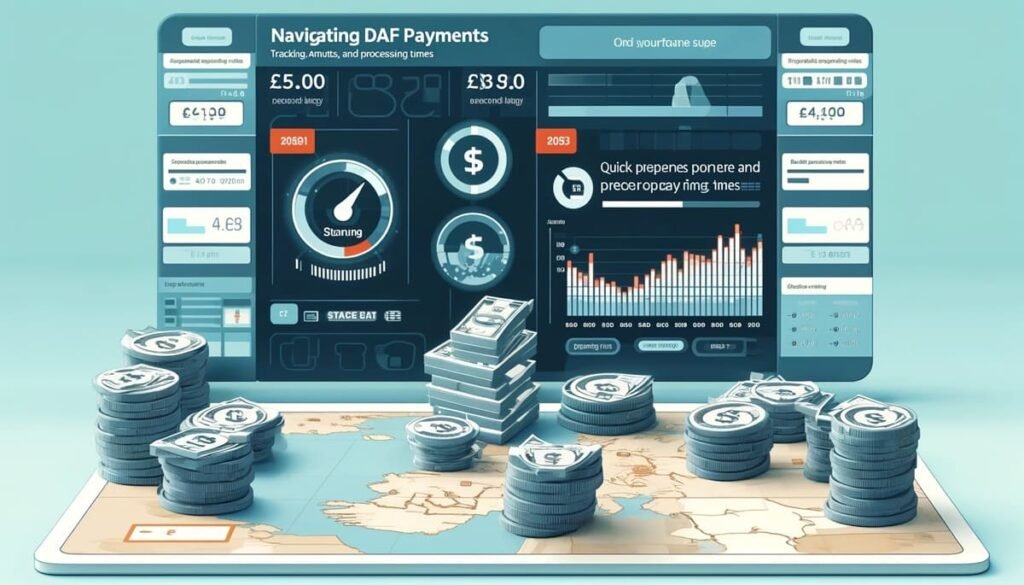
The Discretionary Assistance Fund (DAF) in the UK provides emergency financial support to individuals and families in dire need. As we approach 2024, understanding how to track DAF payments, the amounts typically awarded, and the expected processing times can be crucial for potential applicants.
Contents
What is the DAF Payment?
The DAF Payment is a source of financial aid designed to help those who do not have other means of covering immediate and severe necessities. This fund is often used in situations such as emergencies, disasters, or sudden financial distress that leaves individuals without basic needs like food, heating, or housing.
Tracking DAF Payments in 2024
To track a DAF payment, applicants or recipients will typically need to use online systems provided by their local council or a designated government portal. As digital transformations continue, more streamlined and user-friendly tracking solutions are likely to be implemented, which may include real-time updates via apps or SMS notifications.
How Much is the DAF Payment?
The amount of money provided through DAF payments can vary widely based on several factors:
- Severity of the Situation: More severe situations may warrant higher payments.
- Local Council Budgets: Available funds can differ by region depending on how local budgets are allocated.
- Individual or Family Needs: Payments may be adjusted based on whether an individual or an entire family is in need.
In 2024, adjustments for inflation and changes in the cost of living are likely to affect the amounts disbursed. Applicants should consult their local council’s guidelines for the most accurate and up-to-date information.
Processing Times for DAF Payments
The urgency of DAF payments means they are typically processed quickly compared to other forms of financial aid. Processing times can vary, but most applications are reviewed within:
- Emergency Cases: 24 to 48 hours.
- Less Urgent Cases: Up to a week.
Efficiency in processing is crucial, as the fund aims to prevent harm or alleviate severe hardship due to delays.
How to Apply for DAF Payments
- Eligibility Check: Ensure you meet the criteria set out by your local council. This often involves proving that you have no other means of financial support.
- Application: Complete an application through the designated online portal, by phone, or through other means specified by your local authority.
- Documentation: Provide any necessary documentation that supports your claim, such as proof of income, residency, and the nature of your emergency.
FAQs
Q: Can anyone apply for a DAF payment?
A: Eligibility is generally restricted to those facing extreme financial hardship and who have exhausted all other options.
Q: Are DAF payments repayable?
A: No, DAF payments do not need to be repaid as they are intended to provide non-repayable support during emergencies.
Q: How can I ensure my application is processed quickly?
A: Provide complete and accurate information from the start and respond promptly to any inquiries from the processing office.
Q: What can DAF payments be used for?
A: They are intended for critical needs such as food, essential living items, emergency travel, or temporary housing.
Conclusion
DAF Payments provide a vital safety net for individuals and families during times of unforeseen financial distress. By understanding how to track these payments, knowing the potential amounts, and familiarizing oneself with the application process, eligible UK residents can effectively navigate this support system in 2024. For more detailed information and to apply, residents should directly contact their local council or visit official government websites related to social welfare and emergency assistance.